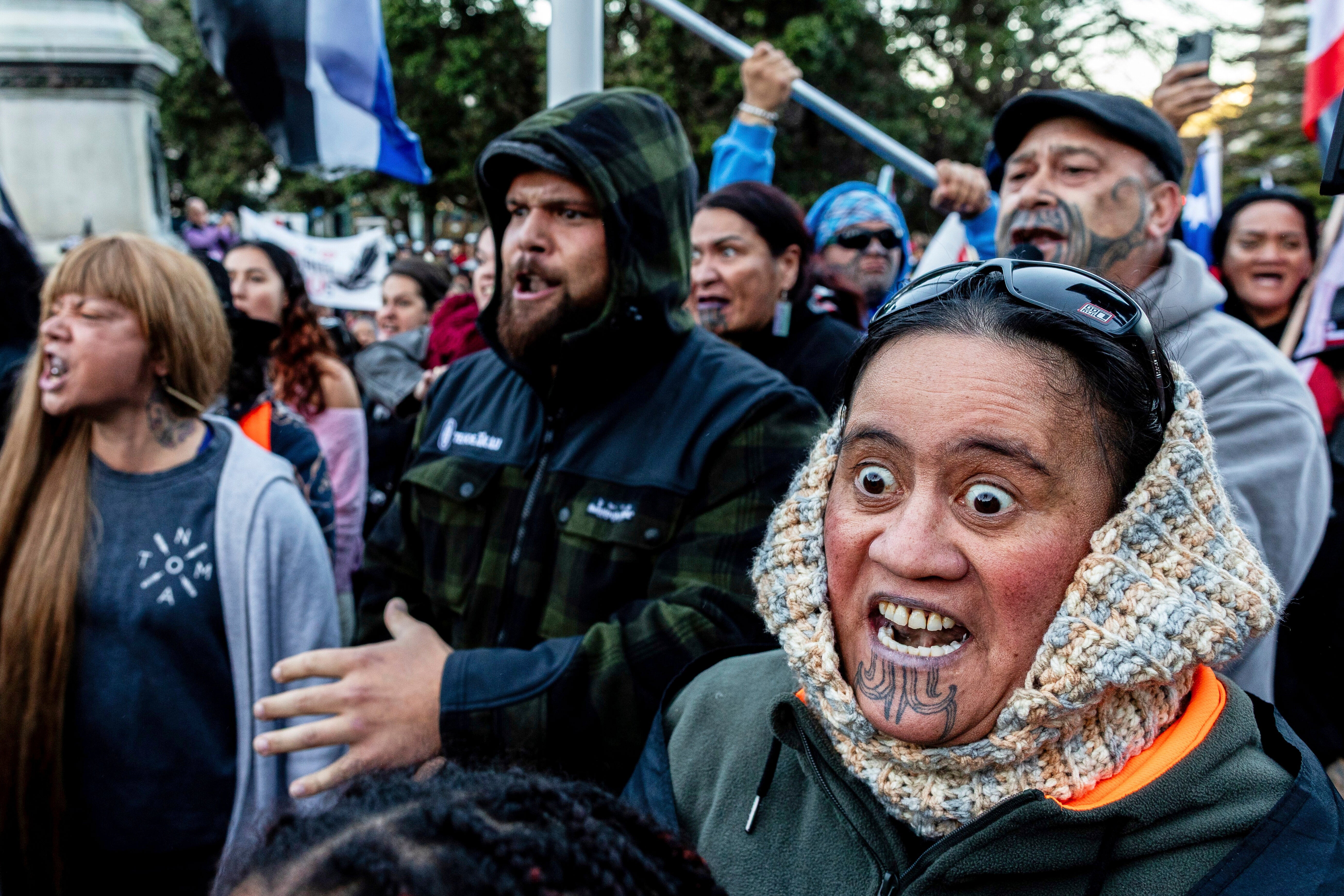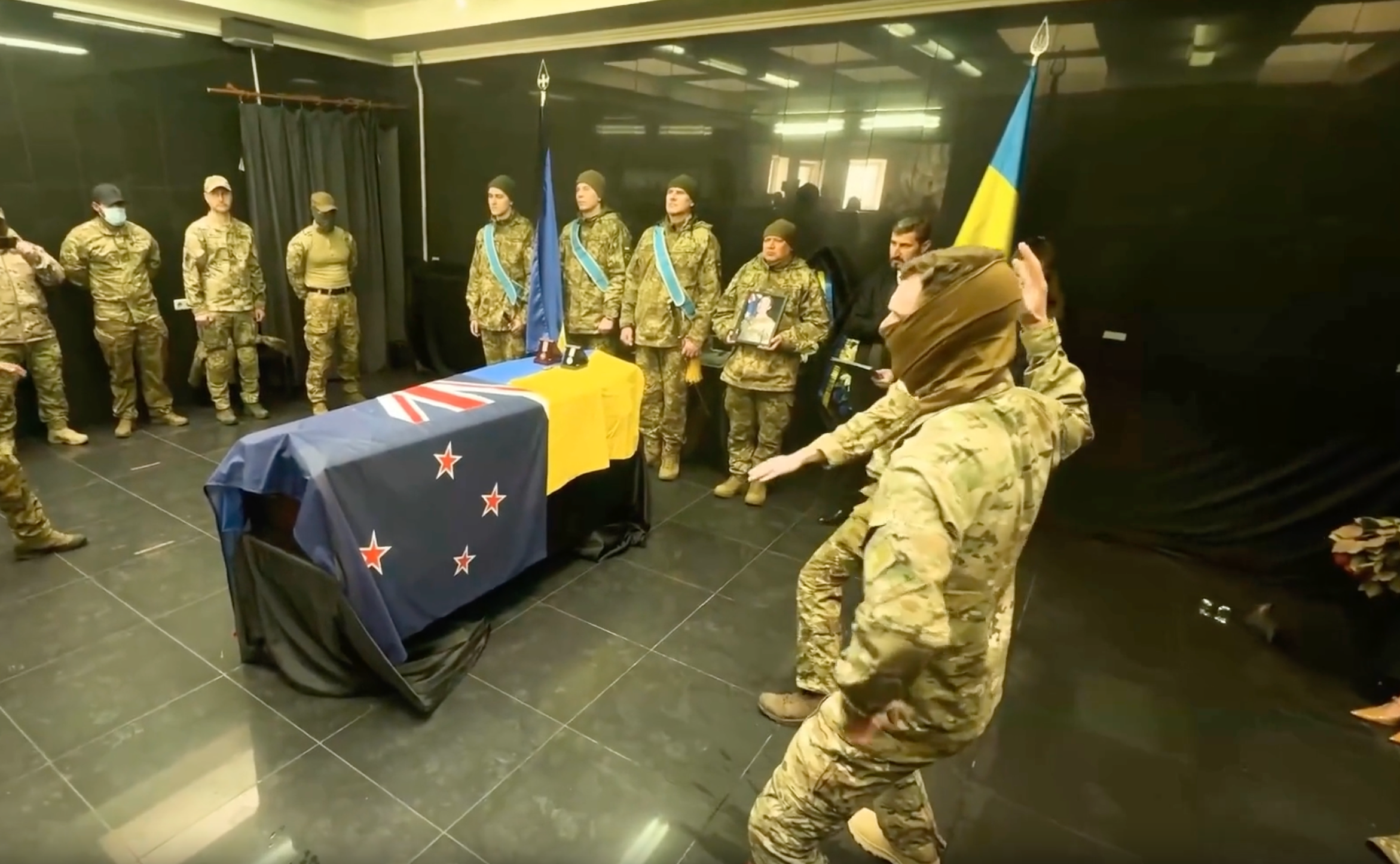ARTICLE AD BOX
The haka, a traditional Maori dance of challenge, has transcended its sacred origins to become a cherished cultural symbol for all New Zealanders.
From sporting events to funerals and graduations, its powerful performances often resonate globally, a source of national pride.
However, a haka performed within the country’s Parliament in November has ignited a fiery debate, dividing politicians on whether it constituted peaceful protest or an act of intimidation.
Three Maori Party legislators performed the haka during a protest against a bill to redefine the Treaty of Waitangi, New Zealand’s founding document, leading to proposed sanctions of unprecedented length.
A parliamentary vote on the bans was unexpectedly postponed on Tuesday, pushing the contentious issue to June. The delay threatens to stall the legislative agenda until a cross-party consensus can be reached on the appropriate response.
Outside Parliament, hundreds of protesters gathered on Tuesday, waiting to greet the Maori Party lawmakers with a haka of their own, demonstrating the depth of feeling surrounding the issue.

What is the haka?
The haka was once viewed as a war dance, but that understanding has changed in New Zealand as it has been embraced in a range of celebratory, sombre and ceremonial settings.
It is an expression of Maori identity and while sacred, it can be performed by people of any race who are educated by Maori in the words, movements and cultural protocols.
Emotional haka have generated news headlines in the past year when performed by soldiers farewelling a New Zealander who died fighting in Ukraine, and in Paris by athletes from New Zealand’s Olympic team.
While the best-known haka is “Ka Mate”, the chant often performed by the All Blacks rugby team before games, there are many variants.

Why was this haka controversial?
November’s protest wasn’t the first time a haka has rung out in Parliament. Performances regularly follow the passage of laws important to Maori.
But some lawmakers decried this one for two reasons: because the legislators from Te Pati Maori, the Maori Party, left their seats and strode across the floor toward government politicians while performing it, and because it disrupted the vote on a proposed law.
When asked how the Maori party would vote on a bill that they said would dismantle Indigenous rights, Hana-Rāwhiti Maipi-Clarke – New Zealand’s youngest parliamentarian, at 22 – tore up a copy of the law and began the haka, joined by two of her colleagues.
The law, an attempt to rewrite New Zealand’s founding treaty between Maori tribal leaders and the British crown, was widely unpopular and has since been defeated. But for six months, a committee of the MPs’ peers have fought furiously about how, or whether, their protest of it should be punished.

Why is debate about this haka still going?
Usually, there is agreement among parliamentarians about penalties for errant behaviour. But this episode polarised the committee considering the lawmakers’ actions.
Its report recommended Ms Maipi-Clarke, who the committee said showed contrition in a letter, be suspended for seven days and her colleagues for 21 days. That is the harshest penalty ever assigned to New Zealand politicians; the previous record was three days.
This month, Parliament Speaker Gerry Brownlee scheduled a rare, unlimited debate in Parliament until all parties could find consensus on the penalty, citing the severity of the proposed bans. But minutes after the debate began Tuesday, it was adjourned at the government’s behest after they allowed the Maori party lawmakers to stay until after Thursday’s budget was delivered.
It permitted the government their budget week agenda and meant the Maori MPs, who are opponents of the government, would not miss one of Parliament’s most significant dates. But the debate about the bans will then resume.

Opposition leader Chris Hipkins, the only opponent of the sanctions to speak before debate was suspended, cited episodes where MPs have brawled in Parliament and driven a tractor up the building’s steps, but were not suspended, as evidence that the bans were not fair.
But Judith Collins, the chair of the committee that produced the sanctions, said the penalties were “not about the haka”. Ms Collins said the MPs’ behaviour was the most egregious she had ever witnessed.
What happens next?
The debate will resume on 5 June, when it threatens to stall usual government business once more. The government said on Tuesday that it would not back down from the punishments suggested and opposition parties said they could not be swayed from disputing them.
Outside Parliament, activist Eru Kapa-Kingi told the assembled crowd that the haka was “a source of fear” in Parliament.
“Even though when the All Blacks do it it’s a good thing,” he added.









 English (US) ·
English (US) ·